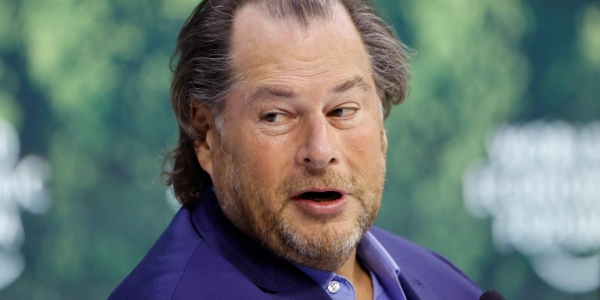
Salesforce’s year got off to a rough start when the company announced a second round of layoffs affecting 10% of its staffers, which the company fondly refers to as its “Ohana,” or family.
The day after Salesforce announced the cuts, CEO Marc Benioff led an all-hands meeting to explain the company’s decision. It didn’t go well. Employees criticized Benioff for being evasive during the meeting and thrusting the Ohana idea in a call that was expected to be about job losses.
Now Benioff says the call, which lasted for two hours, wasn’t the best idea.
“We were trying to explain the unexplainable,” Benioff told the New York Times in an interview published Monday. “It’s hard to have a call like that with such a large group and have it be effective, and we paid a price.”
That episode left some of the Salesforce employees who were spared upset and flummoxed about their role in the company; workers have flooded a Slack channel meant for employee grievances with complaints, Fortune reported earlier this month.
But Benioff characterized the layoffs as a part of how Salesforce works, and that there would be no growth if the company was in a comfortable “steady state.”
“I wish I offered lifetime employment,” he told the Times. “But the reality is when you have a big company with 80,000 employees, there are going to be times you have to make a headcount adjustment. Our layoff packages are some of the most generous ever.”
Stewart Butterfield, former CEO of Slack, the workplace communications platform acquired by Salesforce for a whopping $28 billion during the pandemic, even acknowledged the relative generosity of the severance package compared to many other companies. It included a “longer than usual paid notice-period,” allowing bonuses to be given out and stocks to be vested to help cushion the blow. The severance package for laid-off employees included a minimum of five months’ pay.
Turbulent times
Salesforce has had a turbulent few months. The company laid off hundreds of employees in November, ending a hiring run that tripled its headcount since 2017. Co-CEO Bret Taylor abruptly left the company in December after serving for just a year. Activist investors are also pressuring the company to cut costs and enact further changes.
The company is undertaking an aggressive cost reduction strategy as it looks to increase profit margins and keep expenses under control. Earlier in the year, Benioff told some employees that he aims to cut between $3 billion and $5 billion in costs, and real estate would make up a “major part” of that mission.
Salesforce isn’t alone in its ambition to cut costs, especially through massive layoffs. Many of its peers—including big tech companies like Microsoft, Google, and Meta—also shed large chunks of their workforce after over-hiring during the COVID-19 pandemic. So far in 2023, 345 companies have laid off upwards of 103,000 workers, according to Layoffs.fyi, a layoff tracking platform.
Salesforce did not immediately return Fortune’s request for comment sent outside of regular operating hours.
